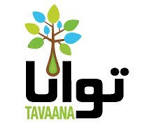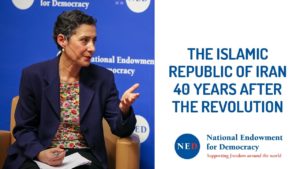 Civil society activist Mariam Memarsadeghi and her NGO Tavaana aren’t planning for the “day of” the revolution, the way so many other opponents of the Iranian regime seem to be. Instead, their work focuses on the “long game” of creating the necessary conditions for an eventual democratic transition in Iran, notes Ilan Berman, senior vice president of the American Foreign Policy Council in Washington, DC.
Civil society activist Mariam Memarsadeghi and her NGO Tavaana aren’t planning for the “day of” the revolution, the way so many other opponents of the Iranian regime seem to be. Instead, their work focuses on the “long game” of creating the necessary conditions for an eventual democratic transition in Iran, notes Ilan Berman, senior vice president of the American Foreign Policy Council in Washington, DC.
Tavaana’s mission is a critical one: to build capacity within Iranian society through civic education and public dialogue on topics like women’s rights, Islamic reform and democratic values, issues which remain generally taboo within the Islamic Republic, he writes for The National Interest:
 It does so via virtual classrooms, social networks and a broad range of open access educational resources such as e-books, audio books, reports on civil society development, case studies on nonviolent struggles for democratic transition in other countries, and more. Tavaana’s sister initiative, Tavaana Tech, helps Iranians acquire circumvention technology and technological know-how so they can freely and safely use the Internet to win their freedom. Its Tolerance Project works to promote broader understanding among Iranians (and Arab audiences) of religious freedom and pluralism.
It does so via virtual classrooms, social networks and a broad range of open access educational resources such as e-books, audio books, reports on civil society development, case studies on nonviolent struggles for democratic transition in other countries, and more. Tavaana’s sister initiative, Tavaana Tech, helps Iranians acquire circumvention technology and technological know-how so they can freely and safely use the Internet to win their freedom. Its Tolerance Project works to promote broader understanding among Iranians (and Arab audiences) of religious freedom and pluralism.
“If much of this sounds like the “soft power” efforts marshalled by the United States and its allies against the Soviets at the height of the Cold War, then it should,” adds Berman. “According to Memarsadeghi, Iran’s population today is very similar to the captive audience that languished behind the Iron Curtain.”
 The West’s democracies should also take concrete action by invoking the recently passed Magnitsky Act and implement targeted sanctions – in the form of travel bans and asset freezes – against the top human-rights violators in Iran, according to Ladan Boroumand (above), of the Omid Memorial Human Rights Library, a former Reagan-Fascell Fellow at the National Endowment for Democracy, and Irwin Cotler, who currently chairs the Raoul Wallenberg Centre for Human Rights.
The West’s democracies should also take concrete action by invoking the recently passed Magnitsky Act and implement targeted sanctions – in the form of travel bans and asset freezes – against the top human-rights violators in Iran, according to Ladan Boroumand (above), of the Omid Memorial Human Rights Library, a former Reagan-Fascell Fellow at the National Endowment for Democracy, and Irwin Cotler, who currently chairs the Raoul Wallenberg Centre for Human Rights.
The account of the rise of activism among Iranian students in Misagh Parsa’s Democracy in Iran: Why It Failed and How It Might Succeed bears witness to a remarkable prodemocracy trend, notes Boroumand. Yet the world political marketplace keeps changing, she wrote for the NED’s Journal of Democracy:
Neonationalism, “illiberal democracy,” and authoritarian ideologies are gaining ground. If and when Parsa’s projected disruptive change comes to pass in Iran, these hostile tendencies will be competing with liberal democracy to seize the opening. The question is which will win—liberal democracy or its rivals. If we understand how and why the liberal-democratic option was rejected in 1979, we may be better able to help it avoid a similar defeat in the future. RTWT







